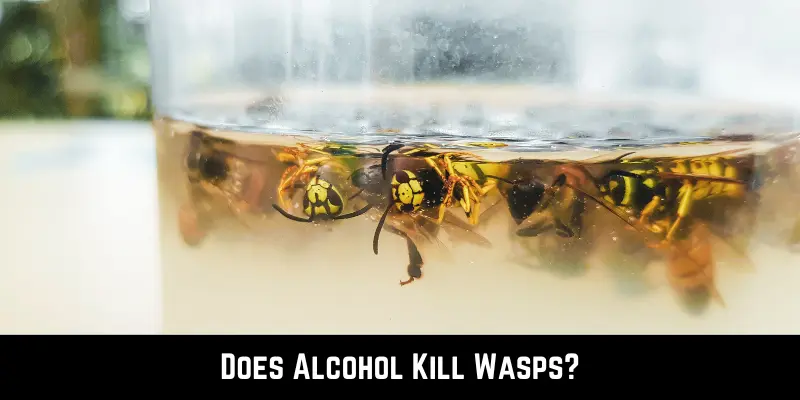Wasps are one of the most nuisance-stinging insects, especially in summer. Getting a wasp sting may cause severe allergic reactions to your skin, so removing them is the best prevention. You may hear that alcohol can help get rid of wasps, but does alcohol kill wasps?
Yes, alcohol can be an effective method for killing wasps. Alcohol not only kills wasps but also liquefies them. However, it’s important to note that spraying wasps with alcohol is a contact method, meaning the alcohol must come into direct contact with the wasps for it to be effective.
So, are you gonna try a popular hack to kill wasps? If yes, read the below guidelines and instructions to kill them effectively.
What Does Alcohol Do to Wasps?
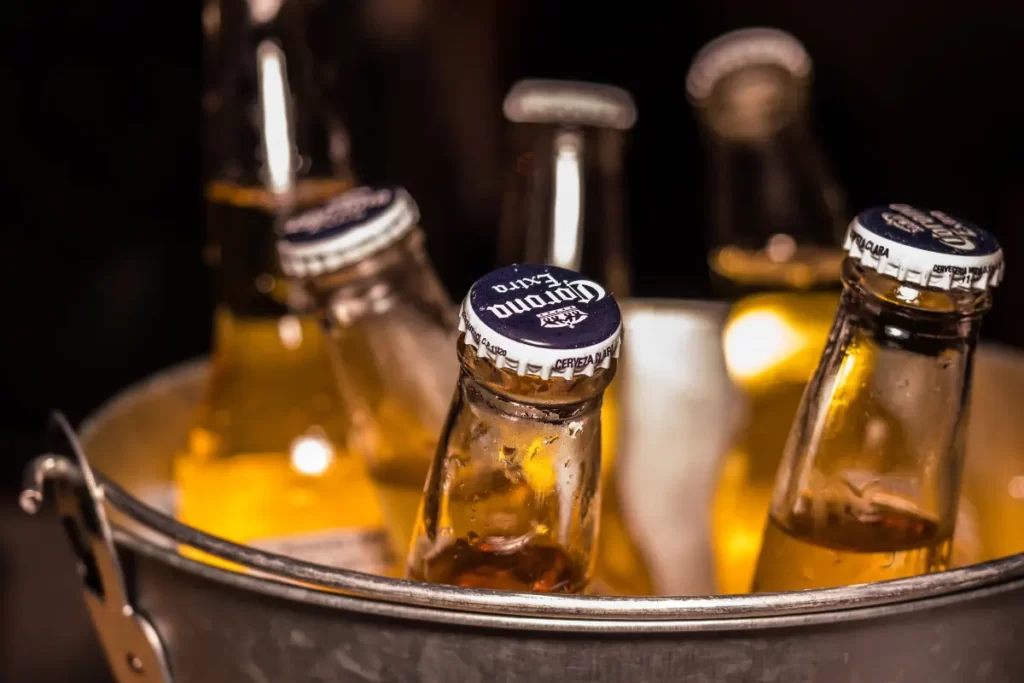
Alcohol can have a similar effect on wasps as it does on many other creatures, including humans. When wasps consume alcohol, it can impair their coordination, disrupt their ability to fly and affect their decision-making abilities.
In comparison to mammals, wasps and other insects have simpler neural systems. Alcohol has an impact on their neurological system, which can result in loss of motor abilities, disorientation, and even death if they consume it in significant amounts.
However, it’s important to note that the effects of alcohol on insects can vary depending on factors like the species of wasp and the concentration of alcohol. It’s also worth mentioning that intentionally giving alcohol to wasps or other creatures can be considered unethical and may not be a recommended approach for dealing with them.
Why Does Alcohol Kill Wasps?
Alcohol can be an effective wasp killer due to its following physical and chemical properties:
- Evaporation and Dehydration: Alcohol, such as ethanol, evaporates quickly. When you apply it to a wasp, it rapidly evaporates, leading to a cooling effect. It can cause dehydration and potentially damage the wasp’s exoskeleton, which is crucial for survival.
- Disruption of Respiratory Functions: Alcohol can interfere with the wasp’s respiratory system. Insects, including wasps, have tiny tubes called tracheae that deliver oxygen directly to their cells. Alcohol can disrupt this system, making it difficult for the wasp to breathe.
- Solvent Properties: Moreover, alcohol is a good solvent and can dissolve substances. When applied directly, it can dissolve the waxy layer on the wasp’s exoskeleton, exposing it to further damage.
- Stress and Disorientation: Even if not directly lethal in small quantities, alcohol can cause stress and disorientation in insects. It can impair mobility, making the wasp more susceptible to other harm.
Above all, when dealing with wasps, always exercise caution and consider professional pest control services if the situation is severe or dangerous.
Do Wasps Hate Alcohol?
No, wasps don’t hate alcohol, although consuming it may kill them. Wasps allure to sweet substances like sugary foods, fruits, and nectar. They don’t have a preference or aversion to alcohol specifically. However, like many insects, they may be attracted to the scent of certain alcoholic beverages if they contain sugars or other sweet ingredients.
If you’re outdoors and enjoying a sugary or fruity drink, wasps may allure to it. It’s vital to stay cautious in such situations to avoid getting stung. Keep your drink covered, use lids or straws, and consider moving to a different area if wasps become a nuisance.
Remember, while wasps might be attracted to certain scents, it doesn’t imply that they “hate” alcohol. They are simply responding to the chemical cues that certain beverages give off.
Does Alcohol Attract Wasps?
Yes, alcohol can attract wasps, particularly in the late summer and early fall when these insects are seeking sources of sugar for energy. Wasps are attracted to sugary substances, and alcoholic beverages like beer, wine, and sugary cocktails can emit sweet odors that attract them.
Furthermore, wasps draw to other sweet substances, such as fruit juices, ripe fruits, and sugary foods. Remember, alcohol consumption outside may attract wasps and cause them to try to investigate.
It’s important to beware when consuming alcohol outdoors, especially in areas where wasps are present. Keep drinks covered when not in use, and consider using clear cups or containers so you can see if a wasp has flown into your drink. Additionally, keep food and drink spills cleaned up to minimize attractants for wasps. If you’re having a picnic or outdoor gathering, consider using screens or covers to help keep wasps away from the food and drinks.
Does Rubbing Alcohol Kill Wasps?
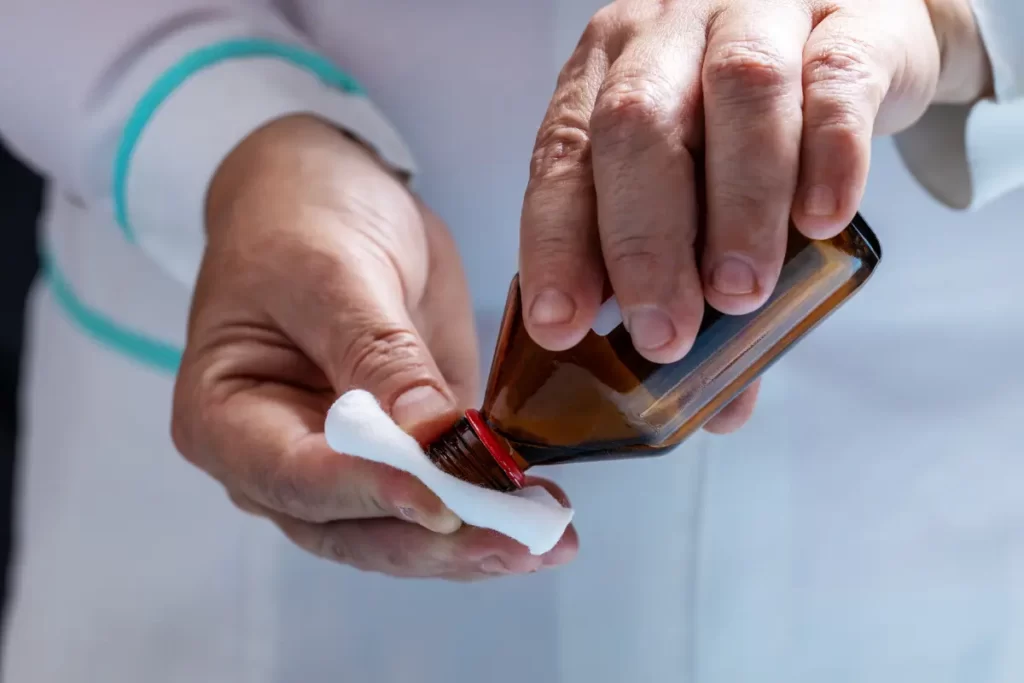
Yes, rubbing alcohol (isopropyl alcohol) can be an effective way to kill wasps. When sprayed directly onto a wasp, rubbing alcohol can penetrate their exoskeleton and disrupt their cells, ultimately leading to their demise. As rubbing alcohol can be flammable, you should use it only in well-ventilated areas when dealing with wasps.
Attempting to spray a wasp nest with rubbing alcohol could potentially anger the wasps, causing them to become more aggressive. Additionally, using flammable substances like rubbing alcohol near a nest could pose a fire hazard.
Above all, if you have a wasp problem, it’s safer to hire a professional pest control service or use a specialized wasp spray designed for this purpose. They have the appropriate equipment and expertise to handle wasp infestations safely.
Does Whiskey Kill Wasps?
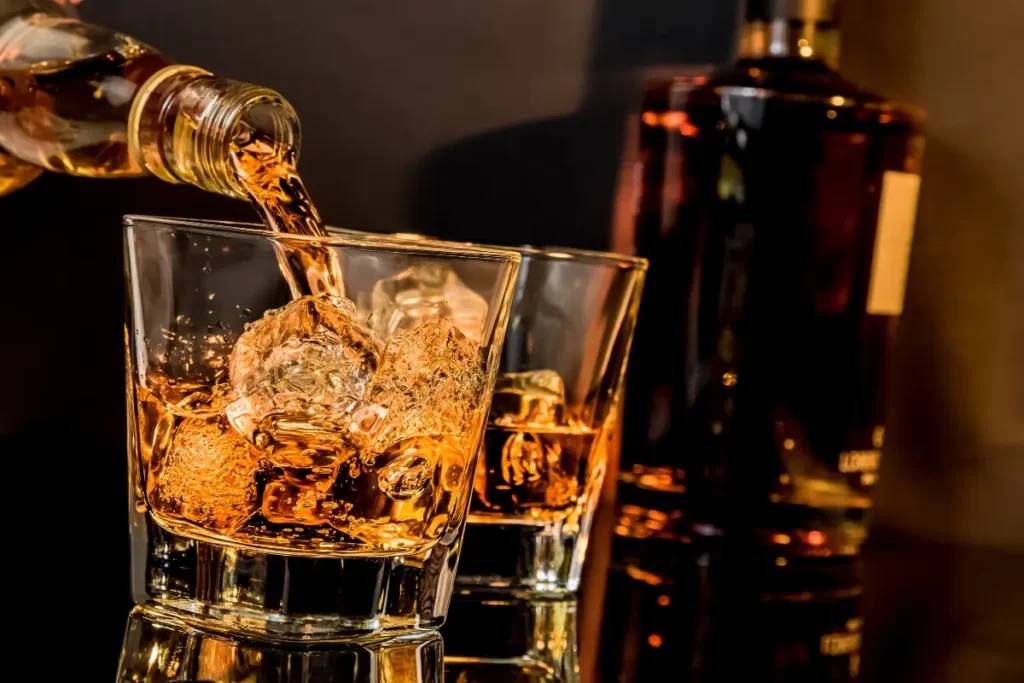
No, whiskey isn’t an efficient or practical way to kill wasps. Even a small bit of whiskey won’t kill a wasp until you pour a lot of it on it. Therefore, using whiskey to kill wasps is not a recommended or effective method. Additionally, it could be considered wasteful and potentially harmful to the environment.
If you have a wasp problem, it’s essential to use established methods for their control. They may include using commercial insecticides specifically designed for wasps, hiring a professional pest control service, or using non-lethal methods such as wasp traps or natural deterrents like peppermint oil or vinegar.
Always exercise caution when dealing with wasps, as they become aggressive, and their stings can be painful or even dangerous if you are allergic.
Does Hydrogen Peroxide Kill Wasps?
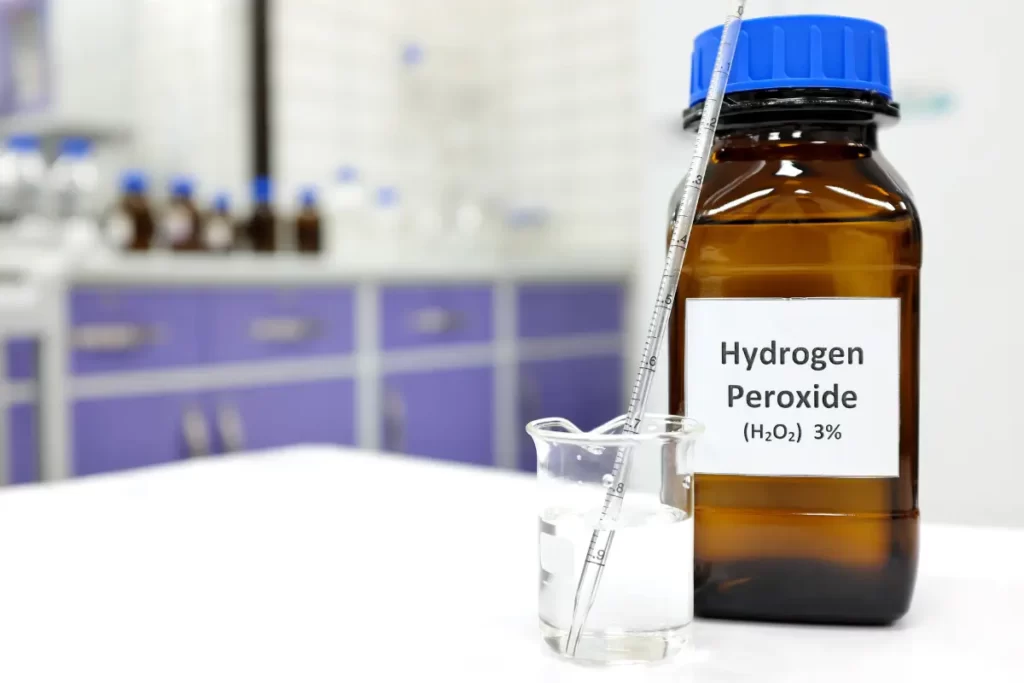
Yes, hydrogen peroxide is an effective household solution for killing wasps. When sprayed directly onto wasps, hydrogen peroxide can be lethal due to its oxidizing properties. It suffocates the wasps and can cause damage to their respiratory system.
Here’s how you can use hydrogen peroxide to deal with wasps:
- Wear protective clothing, such as long sleeves, pants, gloves, and a face shield or goggles to protect yourself from potential stings.
- Mix hydrogen peroxide with water in a spray bottle. A common mixture is 3% hydrogen peroxide and 97% water.
- After that, identify the location of the wasp nest. It’s important to approach it cautiously and from a safe distance.
- Spray the hydrogen peroxide mixture directly onto the nest entrance or the nest itself. The wasps will die immediately upon contact with the hydrogen peroxide.
- Wait for some time to make sure that the wasp activity has ceased. You may need to repeat the process if you notice any surviving wasps.
- Lastly, you can remove the nest once you are certain that the nest is no longer active. Be cautious while doing this to avoid any remaining wasps.
Does Purell Surface Sanitizer Kill Wasps?
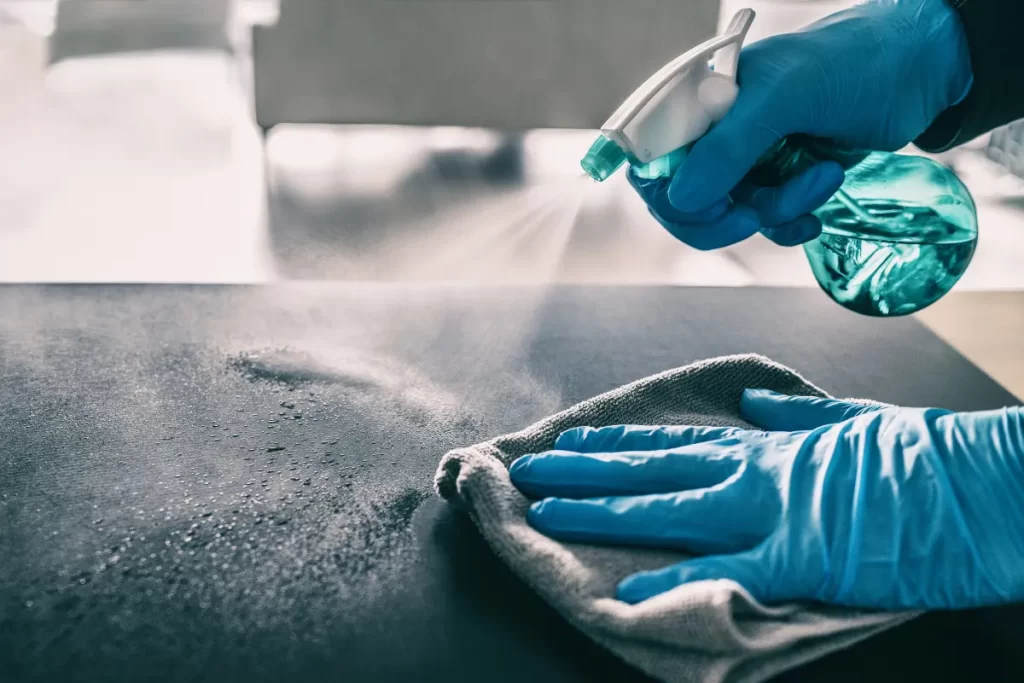
Purell surface sanitizer is primarily designed to kill germs and bacteria on surfaces. While it may have some insecticidal properties due to its alcohol content, it’s not specifically formulated or tested to kill wasps or other insects.
Besides that, it contains a chemical called ethanol, which is a type of alcohol that is effective at killing a wide range of microorganisms. When used on a wasp, the ethanol would have likely killed it by disrupting its nervous system and causing it to die.
Above all, it’s important to note that using Purell Surface Sanitizer on live animals is not recommended, as it can cause harm and suffering. Additionally, using any chemical product to kill wasps or other insects can also have negative effects on the environment, including killing beneficial insects and disrupting the ecosystem.
Does Vodka Kill Wasps?
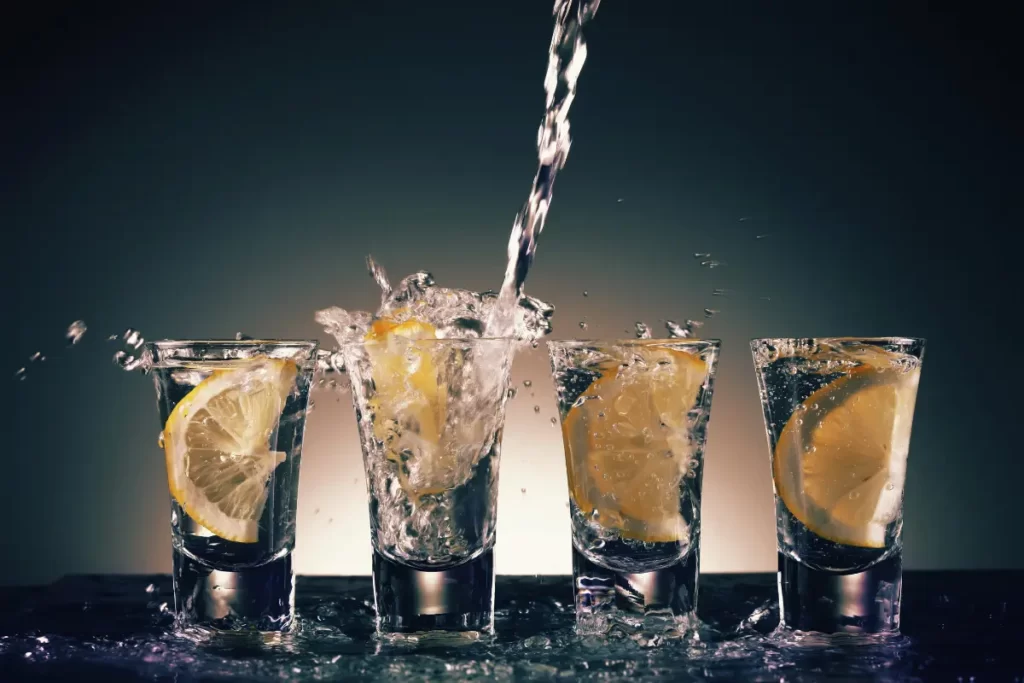
Yes, you can use vodka as an effective homemade wasp spray. The high alcohol content in vodka can kill wasps on contact.
To use vodka as a wasp spray, follow these steps:
- Firstly, mix the vodka and water in a 1:1 ratio. It helps to extend the solution and reduce the concentration of alcohol, making it less wasteful and potentially less harmful to surrounding plants or surfaces.
- Pour the vodka and water mixture into a spray bottle.
- Spray the solution directly onto the wasps. Aim for their bodies to increase the chance of immediate contact.
- Be sure to maintain a safe distance while spraying to minimize the risk of their sting.
- Lastly, if the wasps become agitated or aggressive, be ready to retreat to a safe area.
Remember that while vodka is effective, commercial wasp sprays are specifically designed for this purpose and often have a longer-range spray and may be more potent.
Wrap Up
Wasps are one of the most nuisance and irritating household pets. Removing them is always a challenging task, however, you can use alcohol and other beverages like whisky and vodka to kill them.
Moreover, certain wasps-controlling sprays are available in the market that contain hydrogen peroxide and can effectively kill wasps. However, while using all these methods, you should beware to prevent yourself from danger.
Additionally, if the wasp infestation is very large, don’t hesitate to get help from a professional pest control company. They have special equipment and techniques that will surely help you in getting rid of them.
